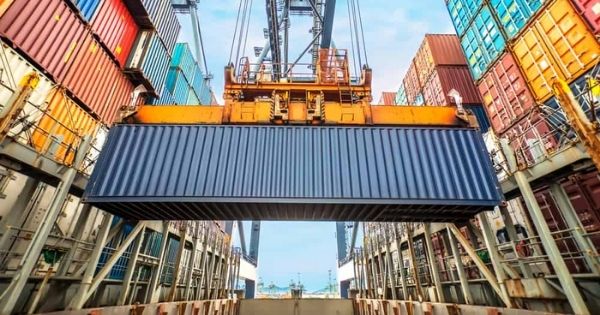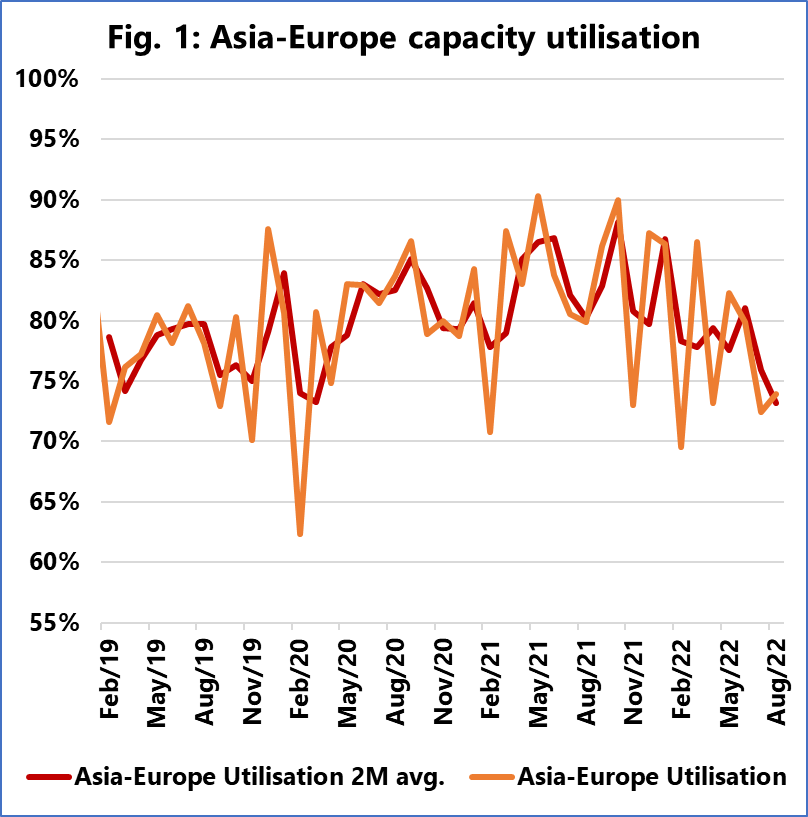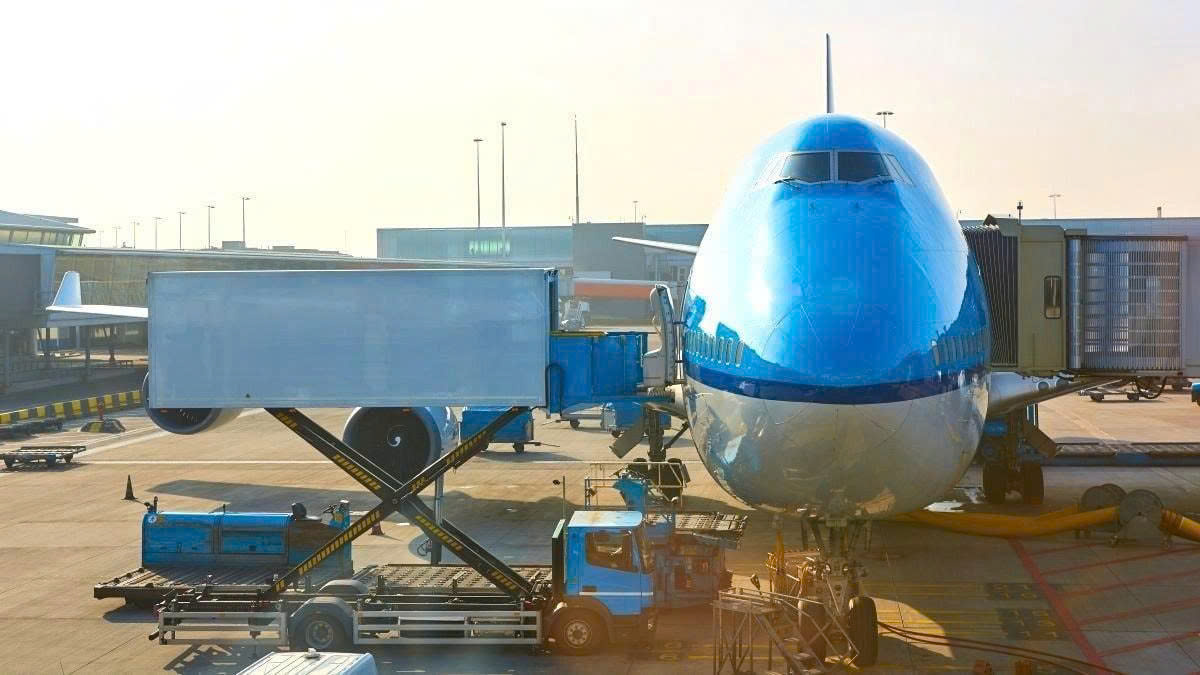The efficiency of using container ships globally is at a low level, especially on the trans-Pacific and Eurasian routes, causing the container freight rates to drop continuously in the past time.

Sea-Intelligence noted in a recent analysis that "Global demand continues to decline and whether we calculate growth in TEUxMiles or as a percentage year-to-date in 2019, one thing is clear. It's clear: the supply/demand balance is under a lot of pressure."
The latest demand data from the Bureau of Container Trade Statistics (CTS) shows that in August 2022, year-over-year growth was lower than that seen in 2019.
Sea-Intelligence further noted "In order to maintain very high spot rates, nominal usage exceeding 92%-93% needs to be maintained on the transpacific service, and with threshold levels on the Asia-Europe route is 85%." However, across the trans-Pacific, capacity utilization fell below 90% for most of 2022, and the price drop continued.

On the Asia-Europe service, train utilization has decreased further. As we can see in Figure 1, the 2022 utilization in Asia-Europe has been consistently below the 85% threshold, which is unlikely to trigger a rate increase and although utilization has improved in August to 74% from 72% in July; the 2-month average continued to decrease from 76% to 73%.
This latest data simply reconfirms what has happened since the beginning of 2022, there is no fundamental support for rates to continue to soar across the trans-Pacific and Asia- Europe.










